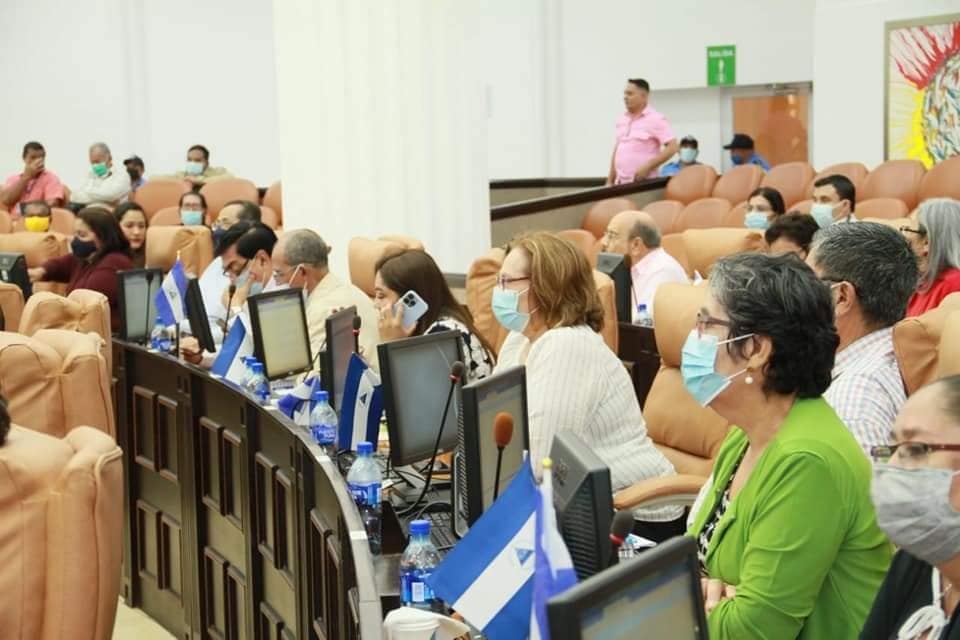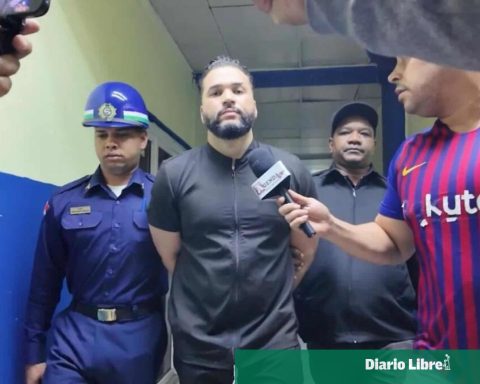The National Assembly controlled by the Ortega deputies and their collaborationist allies approved this March 29 the reforms and additions to the Law of Notaries and the Code of Commerce, which allows the judicial system of the regime to control who are the ones involved in all “purchase and sale” operations. , exchange and donation” of goods and properties, in addition to those referring to the “management of money, administration of bank accounts and creation of legal persons”.
This control of the so-called “final beneficiaries” of these aforementioned operations and the breaking of the confidentiality and secrecy agreements between lawyers and notaries with their clients, generate concern in this guild, due to the risk of no longer being able to offer this type of services. , due to surveillance by the regime, according to inquiries made by CONFIDENTIAL.
Boanerges Fornos, former Managua departmental prosecutor of the Public Ministrywarned of several dangerous aspects of this new law, due to the context of the police state imposed by the Ortega dictatorship to subdue the population.
“They turn the notary into a source of intelligence information related to their clients, mainly those who may have a critical position against the regime, either to criminalize it or control its economic activity,” Fornos explained.
“It is intended to control all activity carried out by the notary public, as an intimidation mechanism to provide all the information it carries about its clients, especially if the notary’s clients are perceived as opponents or critics of the Ortega-Murillo regime. The notary is now forced to provide information on his relationship with his client, for fear of being criminalized or suspended from professional practice, ”he added.
The specialist pointed out that with this new legislation, the economic operations carried out by businessmen, non-profit organizations, professionals and those notarial activities that by their very nature require a high level of secrecy and discretion are exposed to the surveillance and control of the regime.
“By exposing this sensitive information, it turns people who participate in notarial acts that imply certain economic values, into targets of criminalization processes of the regime or of crime itself,” he warned.
It will be the Supreme Courtcontrolled by operators of the regime, which will be in charge through dependencies such as the National Council of Administration and Judicial Career and the Directorate of Registration and Control of Lawyers and Notaries Public, which will execute these control and surveillance operations.
Among the constitutional principles that this new law violates is article 25, relative to the right to individual security of citizens and article 26, referring to private life; which establishes knowing all information that has been registered about it in entities of a private and public nature, as well as the right to know why and for what purpose that information is held.
Ortega: “Surveillance is to prevent drug activity and money laundering”
The reform was defended by the operators of the dictatorship in the National Assembly as a mechanism to strengthen the prevention of activities linked to drug trafficking, organized crime and money laundering. They also allege that these originate from recommendations required by the Financial Action Task Force (FATF).
The main speakers for the regime’s deputies to defend the reform were deputies Wálmaro Gutiérrez and Edwin Castro. both legislators are sanctioned by the Office of Foreign Assets Control (OFAC) of the United States Department of the Treasury.
“We must guarantee that notarial public faith is well used and does not become a tool for committing crimes. Prevent crimes from being committed through notarial exercise. Whoever wants to say the opposite, what he is doing is playing the game of drug activity, organized crime and money laundering. We have commitments to regulate the performance of the notary public as an obligated subject in the framework of the fight against drug activity and organized crime”, justified Deputy Gutiérrez during his intervention in the chamber.
The initiative reformed articles 1, 2 and 14 of the Law on Notaries. In addition, numeral 7 of article 15 of the same law is reformed and numerals ranging from 15 to 20 are added to it. Article 13 of this same law is also repealed and article 121 of the Nicaraguan Commercial Code is reformed. .
“That now some lawyers, colleagues by profession, come to tell me: ‘it’s that if we start reporting, our clients are going to run away.’ Well, let those clients go, because the client who runs away from you because he knows that you have a duty to inform your supervisory body, is definitely not on the right track and is going to put you on the spot. You will end up in jail. Just like your client,” Gutiérrez warned.
Castro appeals to “patriotism”
Deputy Castro, for his part, justified the approval of this law by pointing out that the country’s lawyers and notaries, rather than having a duty to safeguard the confidentiality of their clients, have a responsibility to inform the “people of Nicaragua.”
“We have obligations as notaries public. It is not the client who pays me, gentlemen, for whom I must attest publicly, for whom I must attest publicly, it is for the people of Nicaragua. He is like us (the deputies). We owe it to the people who voted for us, that’s why we can’t vote against this law”, deputy Castro exclaimed in his intervention.
Ortega maintains control of the absolute majority in the National Assembly thanks to the allocation of seats granted by the Supreme Electoral Council during the elections. votes of November 7, 2021, those that were awarded to Ortega in a process without political competition and under the shadow of political repression.
















